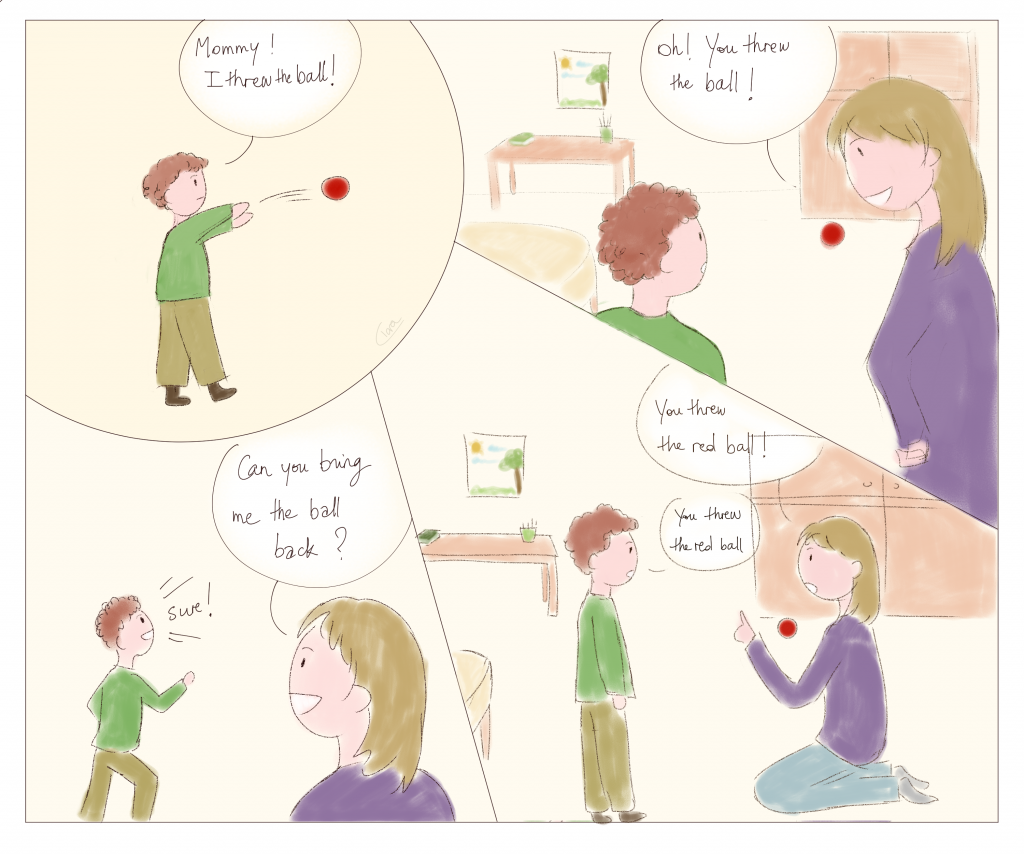How can I strengthen the language skills of a child with Autism Spectrum Disorder?

The back and forth between speakers is one of the foundations of language. When one person speaks, soon after another person responds. It would be uncommon if a friend responded 5 minutes after you said something to them. It would also be surprising if that friend responded about a completely different topic. Reacting right away and on topic is called contingent response. Contingent responses by a caregiver are a great way to build a child’s foundational language skills, and this is especially the case for children with Autism Spectrum Disorder (ASD).
ASD is a developmental disorder that affects a person’s social and communication skills. People with ASD can have difficulties for example maintaining eye contact or taking turns in a conversation. Contingent responses can be particularly helpful for children with ASD to learn language, because it strengthens communicative skills like turn taking and staying on topic.
The key is to try to get close to a child’s eye level. More often than not down toward the floor. You can think of it as ‘floor time’. Then all you have to do is respond contingently to what your child says or does. If your child says “dog”, you can expand on the word by saying “Yes, what a furry dog” or just simply repeat the word. The key is to respond soon after and to stay on topic (the one chosen by the child!).
Of course, it can be hard to spend all day on the floor, with work, cooking and laundry all happening much higher up. Squeezing in a couple moments here and there, however, can make the world of a difference. So get on down there and show your child it takes two to communicate!
The scientific sources for our comic:
Goldstein, M. H., & Schwade, J. A. (2008). Social feedback to infants’ babbling facilitates rapid phonological learning. Psychological Science, 19(5), 515-523.
